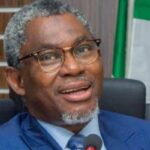As Nigeria struggles to woo millions of children of school age to the classroom, the inability to read, write or solve simple Mathematics by a large chunk of existing pupils has sparked fresh concerns, FELIX KHANOBA writes.
At age 11, Mujeeb Akanbi is one of the luckiest among his peers to be in school in his near-impoverished neighbourhood in Duste, Bwari Area Council of the Federal Capital Territory.
Though in primary six in Local Education Authority (LEA) school in Dutse-Alhaji, a bustling suburb of Abuja-Nigeria’s sprawling capital city, Mujeeb can hardly read two or three-letter words even as he struggles in basic Mathematics.
“They are not teaching us well and when I close from school I go to where I learn furniture work, but I am still trying more than many of my classmates,” Mujeeb said, when confronted over his appalling literacy level.
The young boy is not alone in the predicament, poor literacy among grown up pupils especially those in public schools is gradually becoming a norm across Nigeria.
Many secondary school leavers, and of recent, some university’s graduates, find it difficult to write or read simple sentences, sparking concerns of a learning crisis in a country that still has over 10 million children out of school.
The need to address this educational timebomb of ‘learning poverty’ was re-echoed during a recent media dialogue organised by United Nations Children’s Fund (UNICEF) and the Child Rights Information Bureau of the federal ministry of information in Kano.
Geoffrey Njoku, UNICEF Nigeria Communication Specialist, posited that the silent problem needs serious attention in order not to erode the gains of various school enrollment campaigns by government and development partners.
According to Njoku, while millions of children of school age still roam the streets, about 70 per cent of those in school are not learning or do not know anything, a problem compounded by some teachers who are finding it difficult to ‘deliver in the classroom’.
“The teachers need to be trained and re-trained; we have teachers failing primary 3 exams, so what are we doing?” The soft-spoken Njoku queried. “At this point, if we need to change the school curriculum then let’s do that to achieve improved learning for the children.”
He said the right of children to get functional education formed a major part of the Sustainable Development Goals (SDG).
“This is because if we don’t focus on getting the child rights right, it is going to be a hollow chase because all the SGDs are all intertwined with child rights.”
For Manar Ahmed Sharouda, UNICEF education manager, who also spoke at the Kano’s media dialogue, said teachers have a major role to play to address the learning crisis.
Manar, who hinged her postulation on data from the 2018 National Personnel Audit conducted by the Universal Basic Education Commission (UBEC), said the well-detailed report confirmed that many schools lack adequate teachers and other facilities needed to impact knowledge on pupils, which is a major setback for SDGs’ goal number four.
“Goal four of the SDGs is to ensure inclusive and equitable quality education that promotes lifelong learning and all children by age 10 must know how to read and solve numeracy. It is not that Nigeria lacks the right policy but Nigeria is facing a staggering crisis with learning outcomes being one of the lowest.” “So, 70 percent of the children in school are not achieving basic foundational skills,” she posited.
The UNICEF education manager said the problem has resulted in
Nigeria facing a staggering learning crisis with learning outcomes being one of the lowest globally, even as she urged the government to do more in allocation of resources to education.
“Public spending on education: 1.7percent of GDP allocated to education.
“(There is) inadequate and underprepared workforce-Qualified teachers are in short supply with 27percent of teaching staff unqualified .
“Insufficient physical resources- high classroom learner ratio;
1:55 in primary school,” Manar listed some of the problems that have resulted in the poor learning outcomes.
The fresh concerns on the nation’s learning woes raised by UNICEF appeared to have further served as a wake-up call to UBEC-the government’s agency responsible for ensuring a functional basic education across the country.
Its Executive Secretary, Dr Hamid Bobboyi, said the Commission is worried by the poor learning outcomes despite the billions of naira being sunked into the sector year in, year out.
He, however, blamed the problem on a number of factors including, recruitment of unqualified teachers by some state governments, lack of regular professional training programmes for teachers, low remuneration, among others.
When asked about the recent push by UNICEF to ensure improved learning outcomes in Nigeria’s schools, Bobboyi said,”There is no justification for all the investments, if the child in the classroom is not learning,” adding that the Commission would work with state governments and development partners to address the problem.



